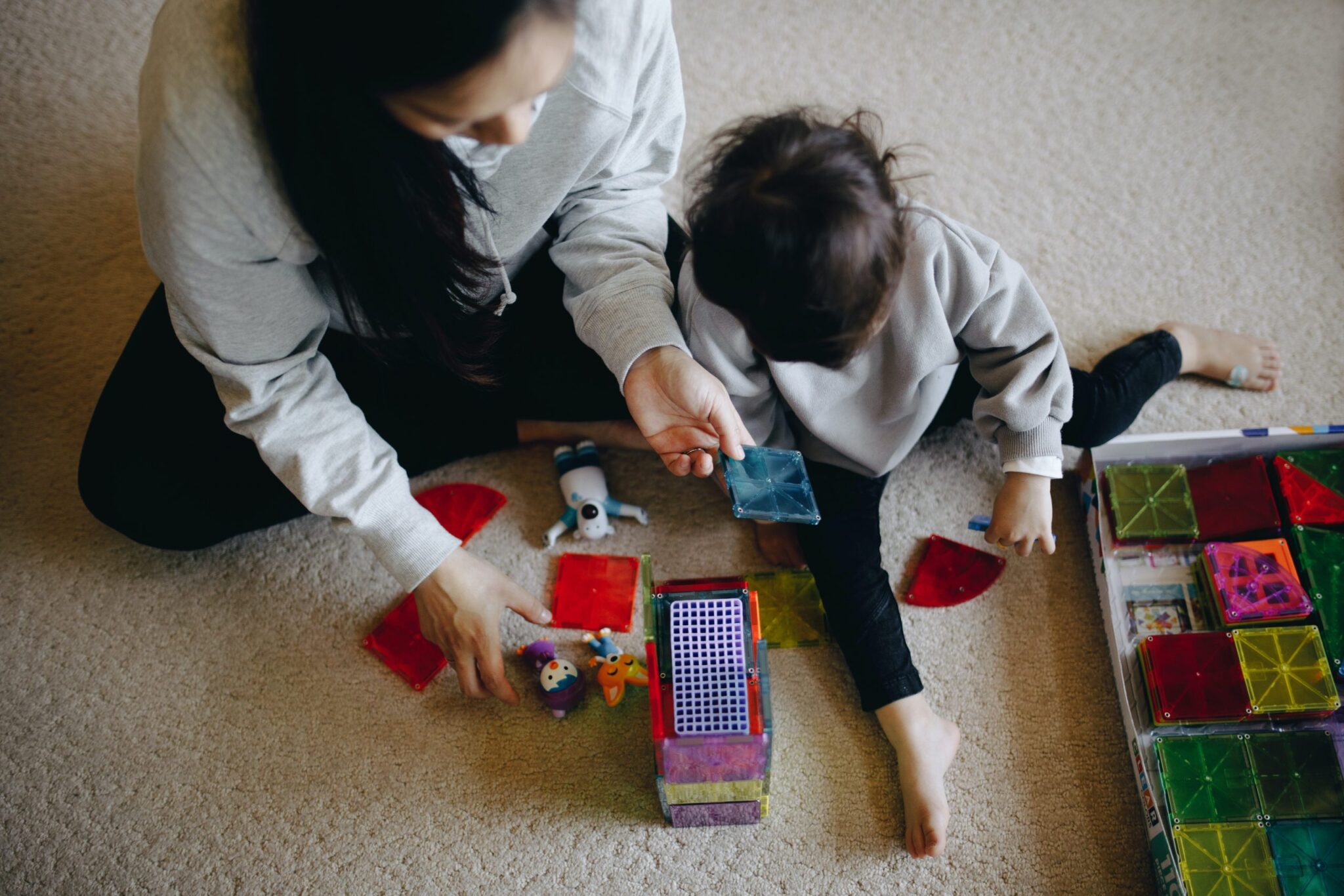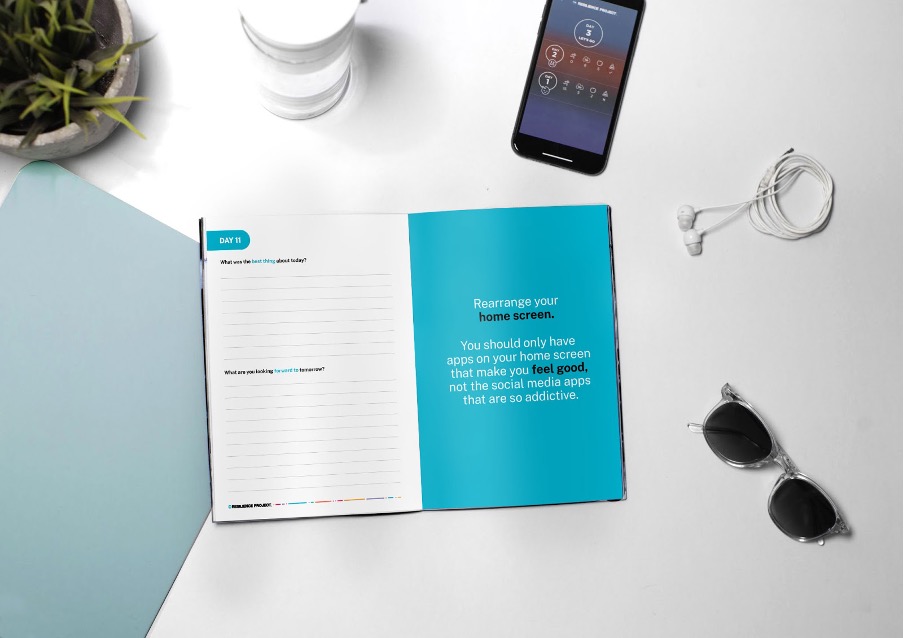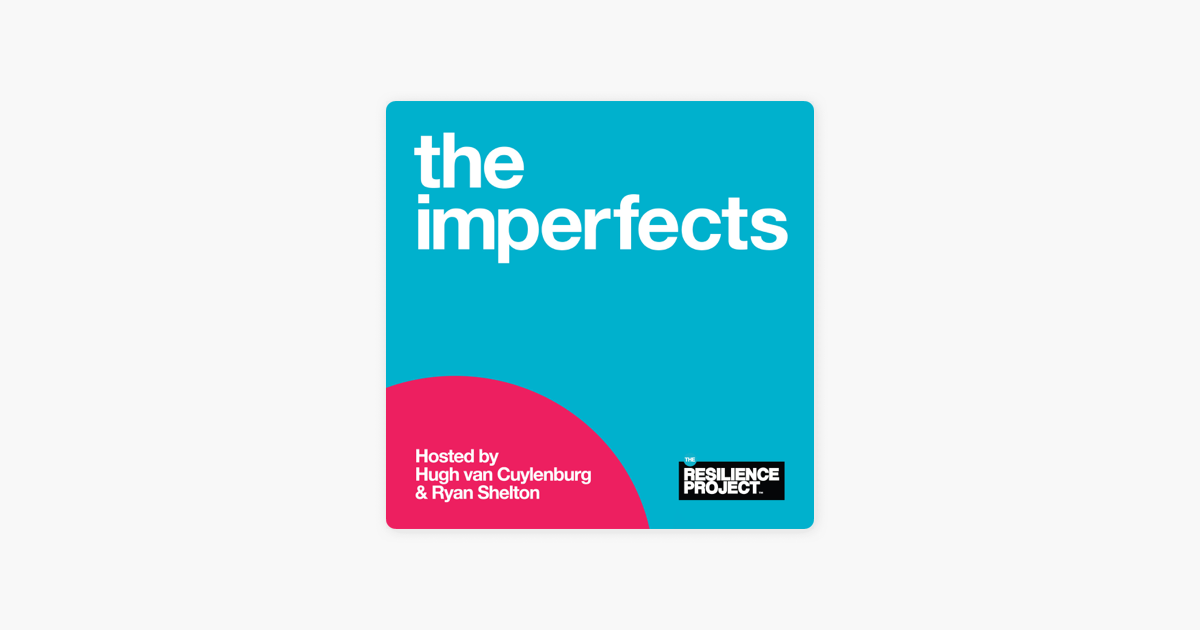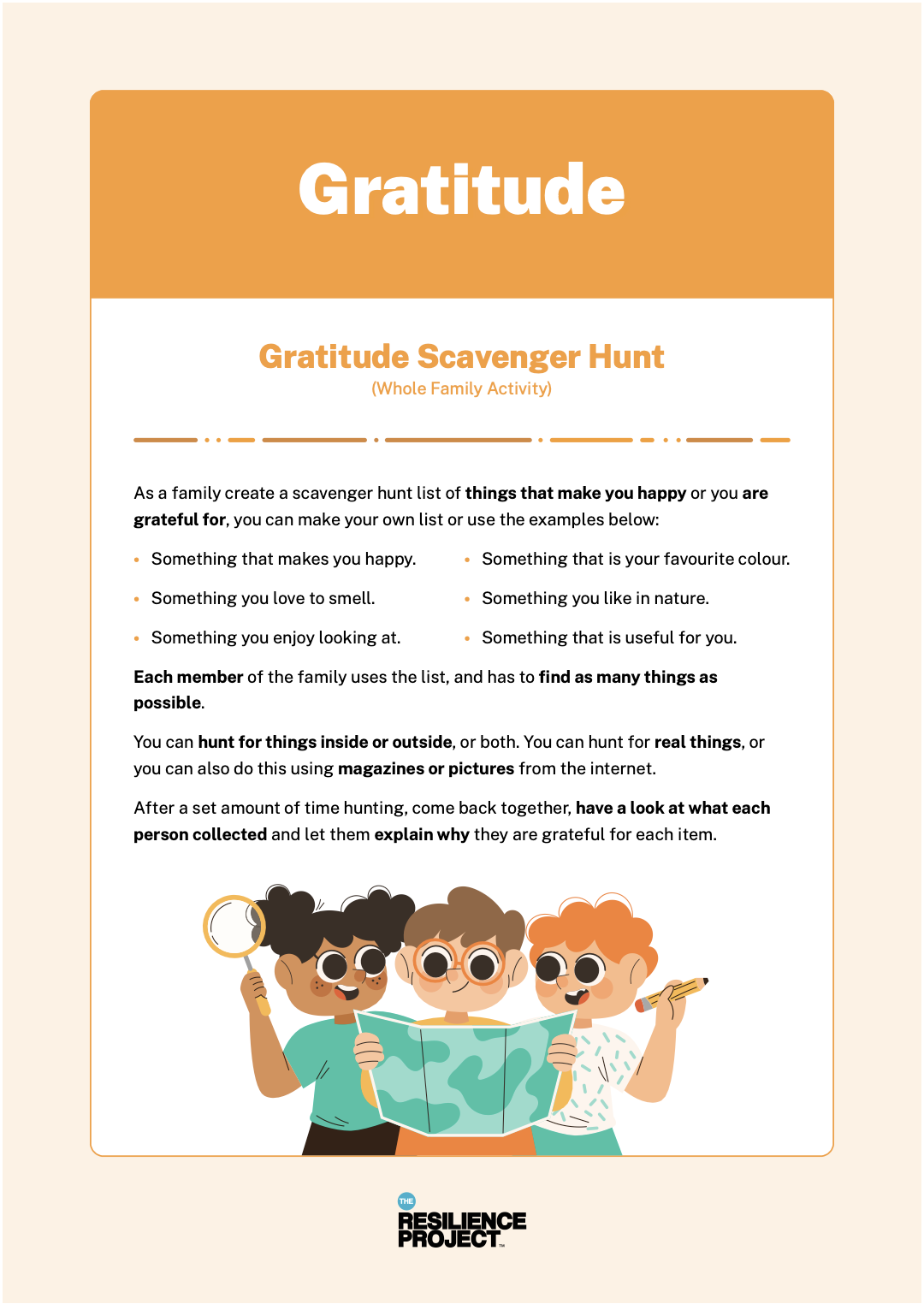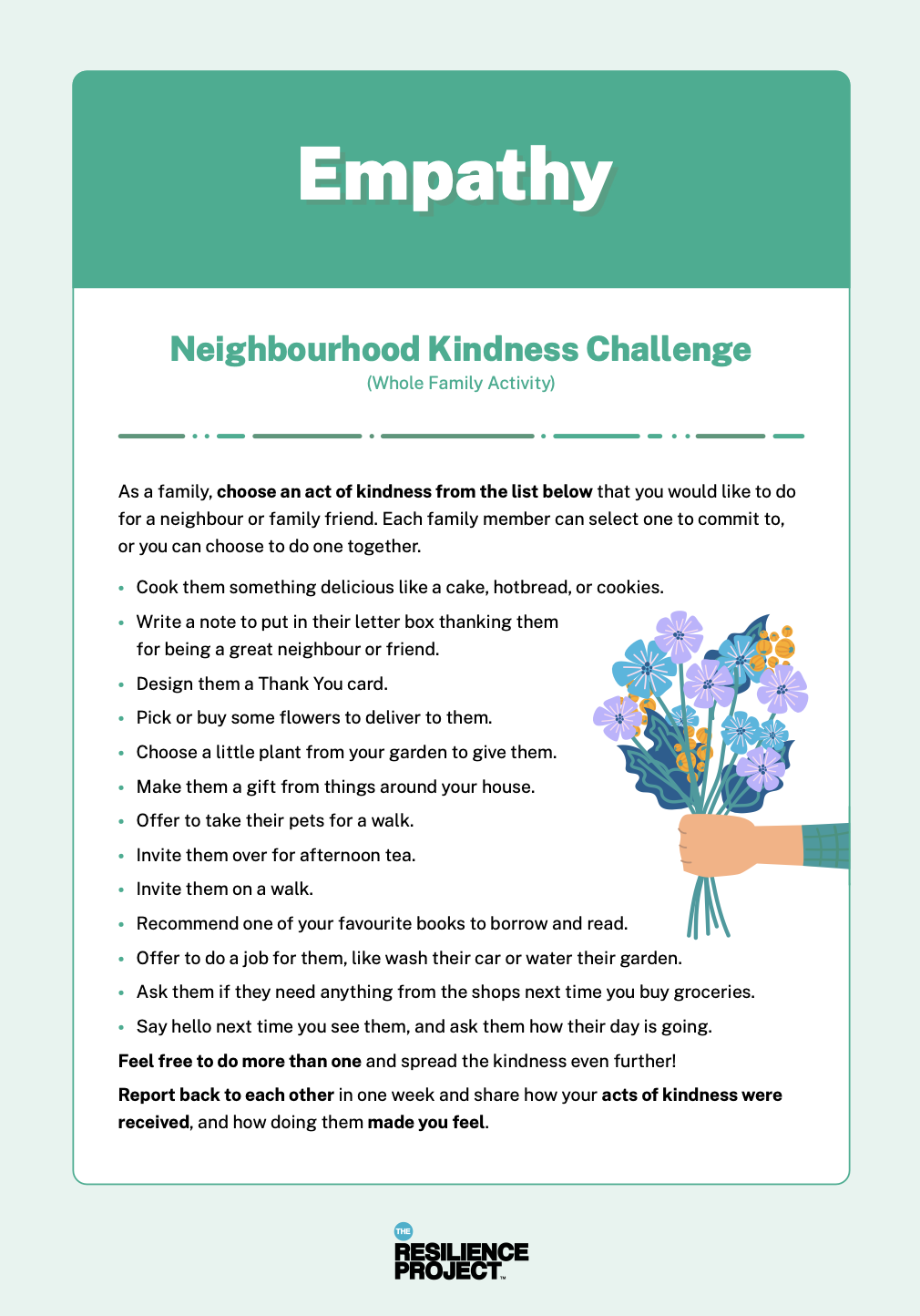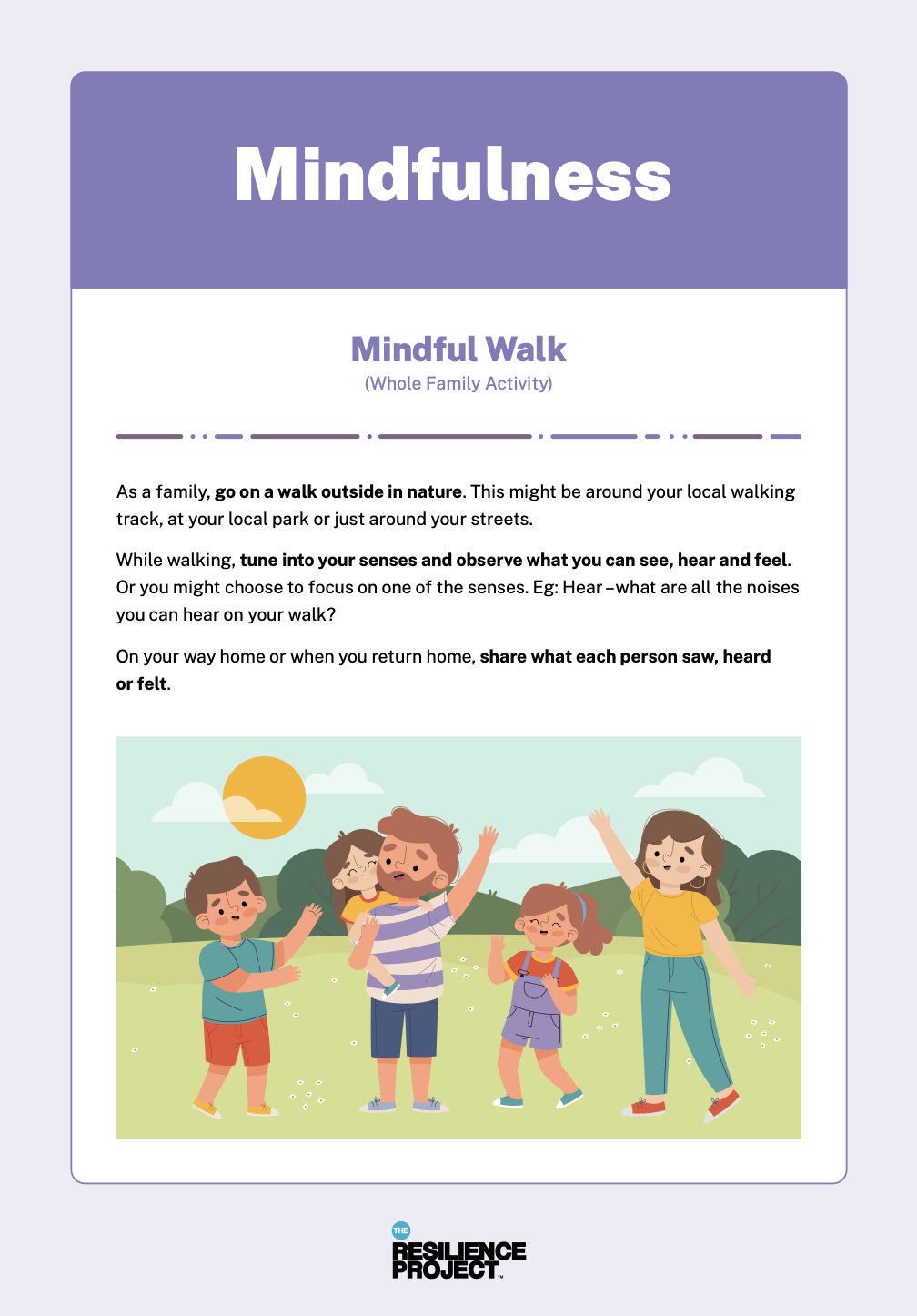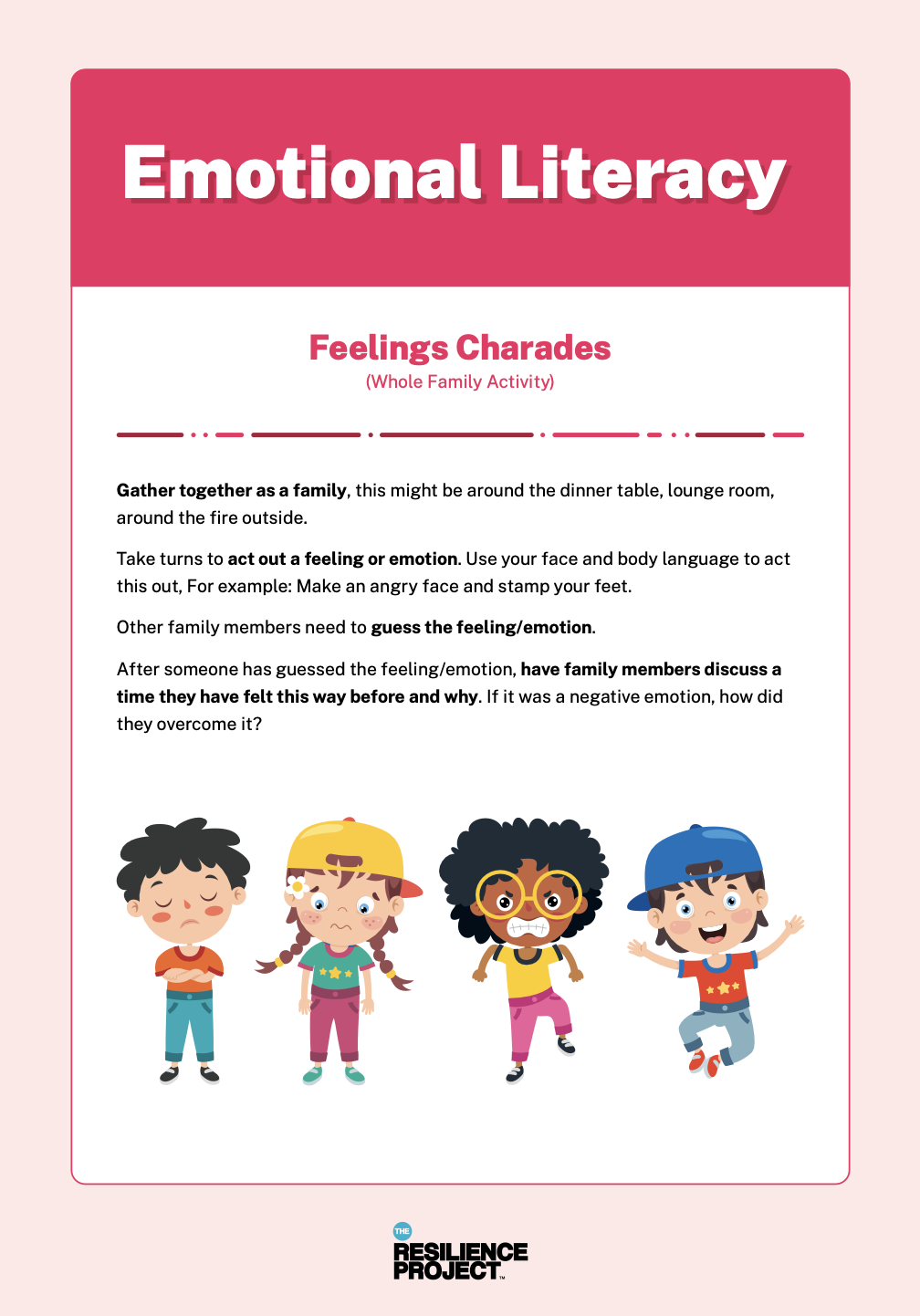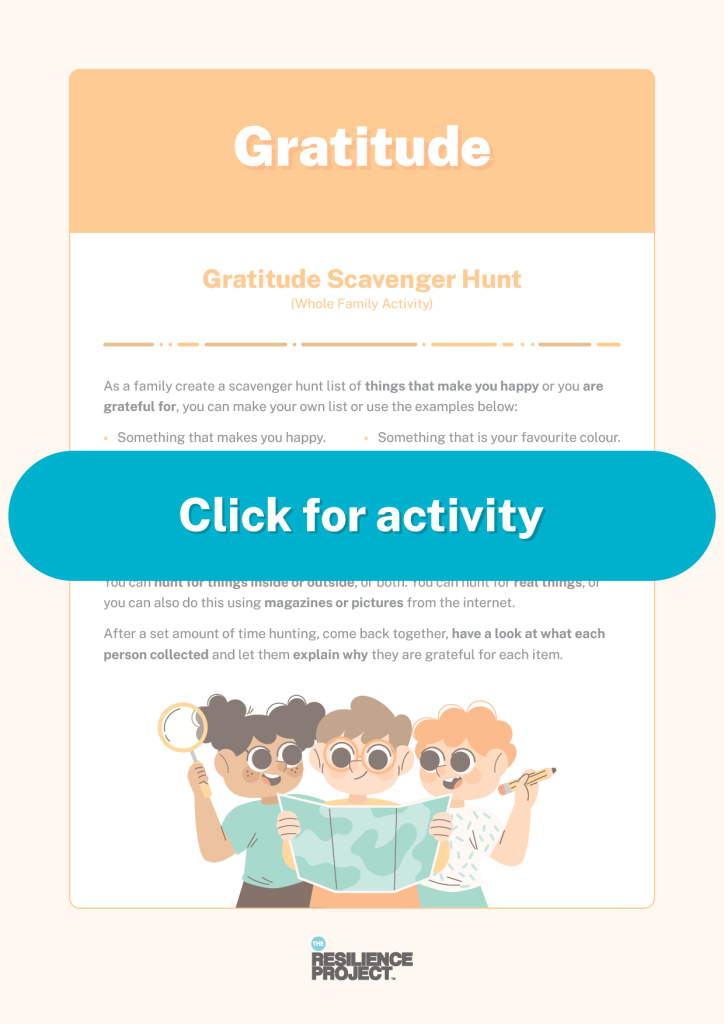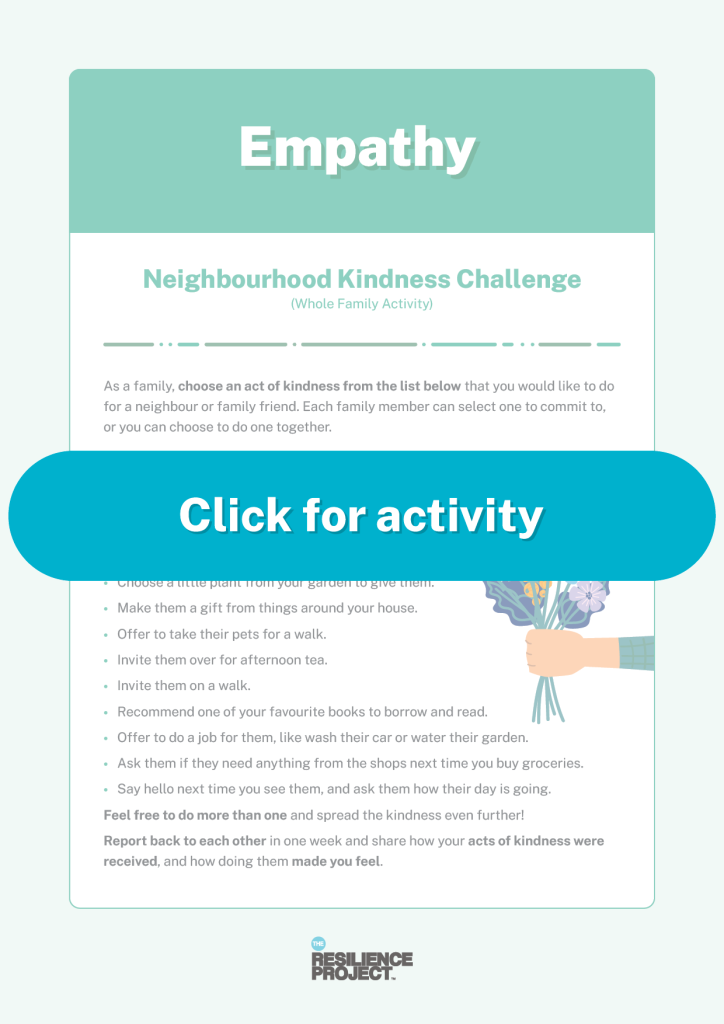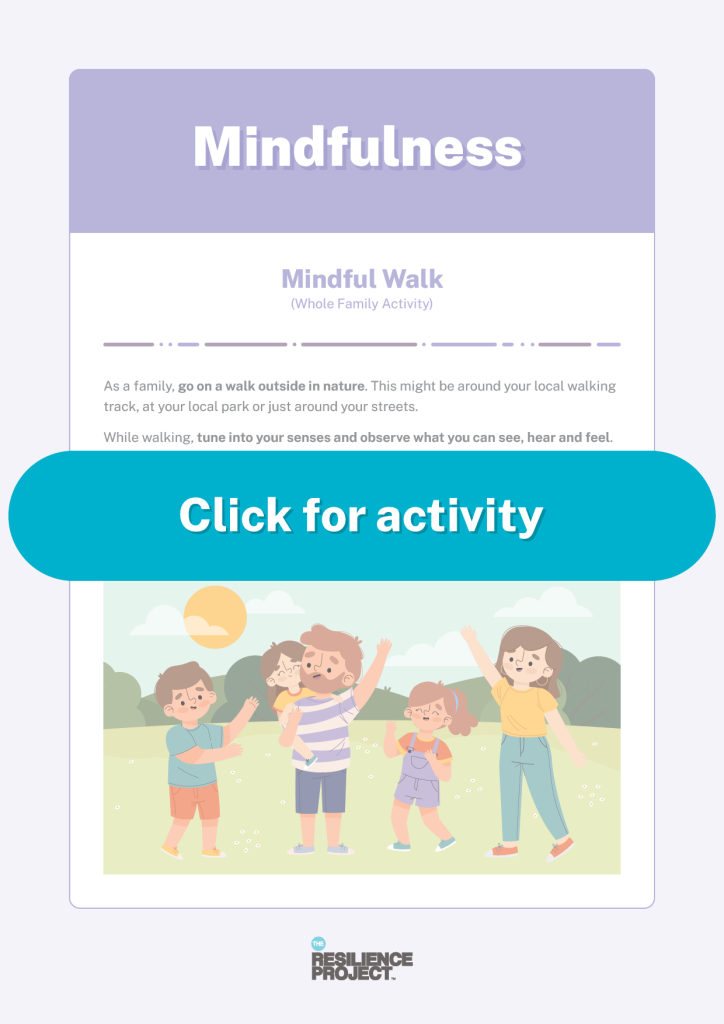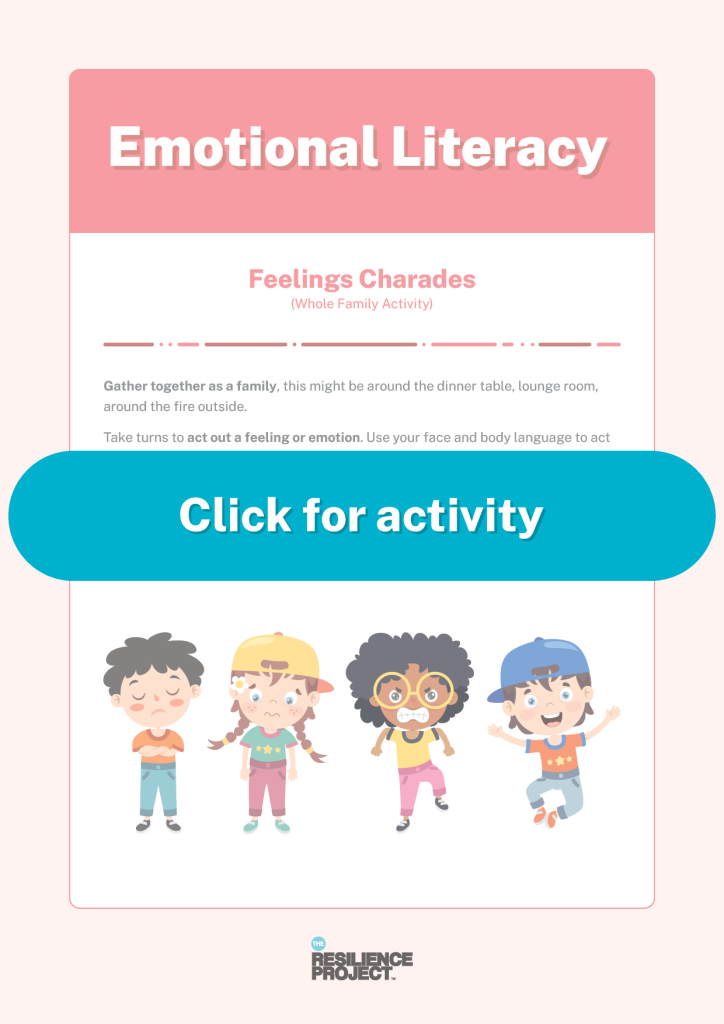Parent & Carer Hub
Welcome! You’ve arrived at this Parent & Carer Hub because your child’s school has invested in The Resilience Project’s wellbeing curriculum – and we’re pretty excited!
When supporting your children’s mental health, we know the best outcomes happen when we work together and practise.
That’s precisely where this hub comes in – to share the simple, evidence-based strategies being taught in the classroom so you can build on their impact at home. Don’t worry, we know a lot of this will be second nature to you, however if you’re interested to learn more and be inspired with additional ways to help your kids (and yourself) feel happier, we’ve got you covered.
Have questions or keen to know more? Check out our FAQ page for more
Explore the key principles:
GRATITUDE is when we pay attention to the things we have right now, and not worry about what we don't have.
Research & Benefits of Gratitude
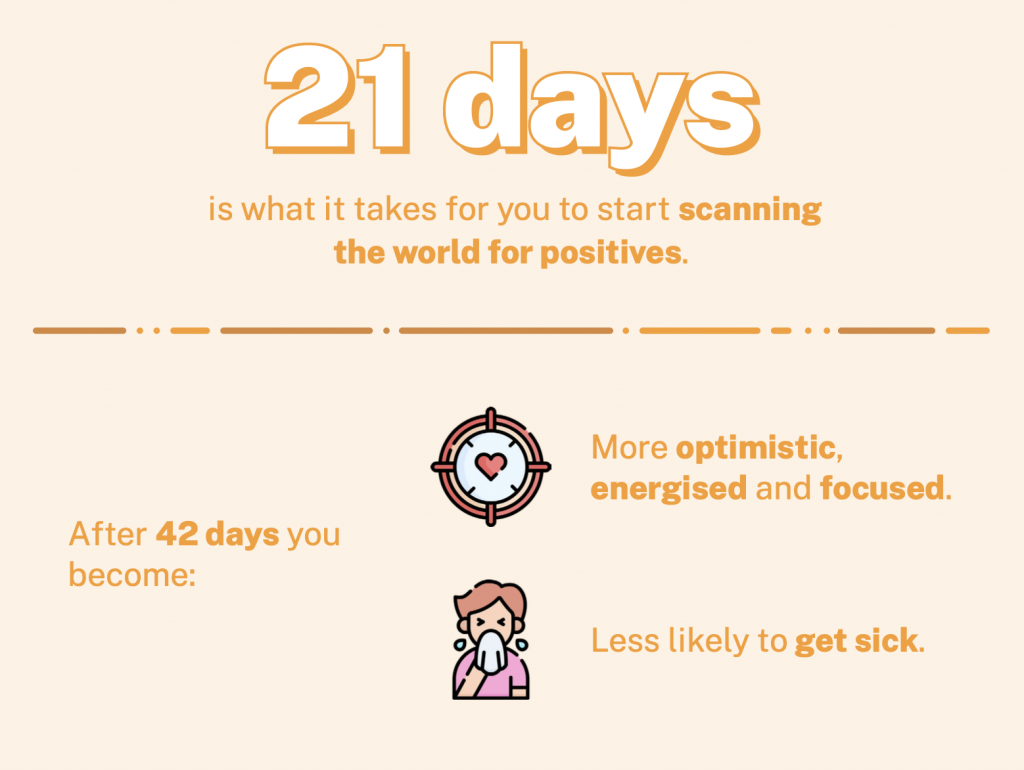
To make gratitude engaging for a range of audiences, we tailor our delivery. Here's an example of how we might talk about gratitude with your child.
Practise
Quick activity
Family Activity - Delve Deeper
Practising gratitude helps us to be thankful and appreciate what we have in our lives, rather than focussing on what we don’t have or what we want.
Try practising gratitude with your family with our family activity.
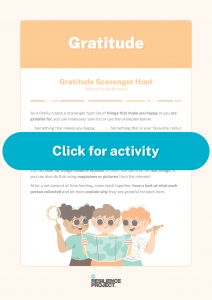
EMPATHY is when we put ourselves in the shoes of others to feel and see as they do.
Research & Benefits of Empathy
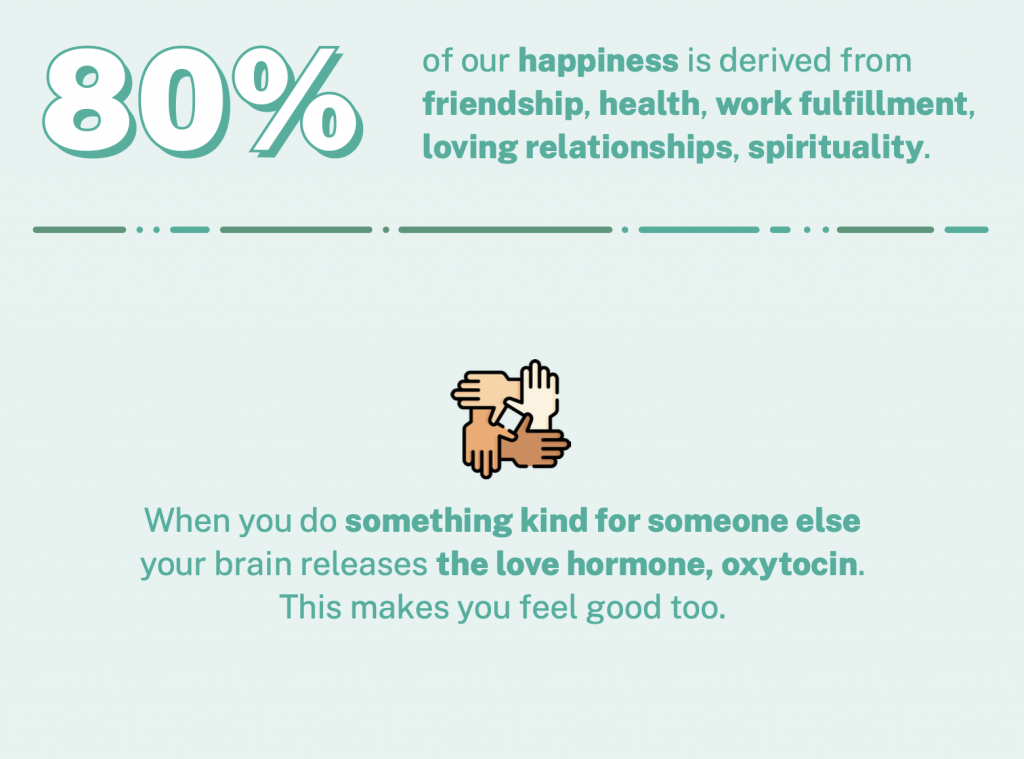
To make empathy engaging for a range of audiences, we tailor our delivery. Here’s an example of how we might talk about empathy with your child.
Practise
Quick activity
Family Activity - Delve Deeper
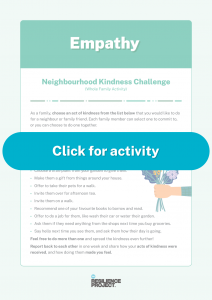
MINDFULNESS is our ability to be calm and present at any given moment.
Research & Benefits of Mindfulness
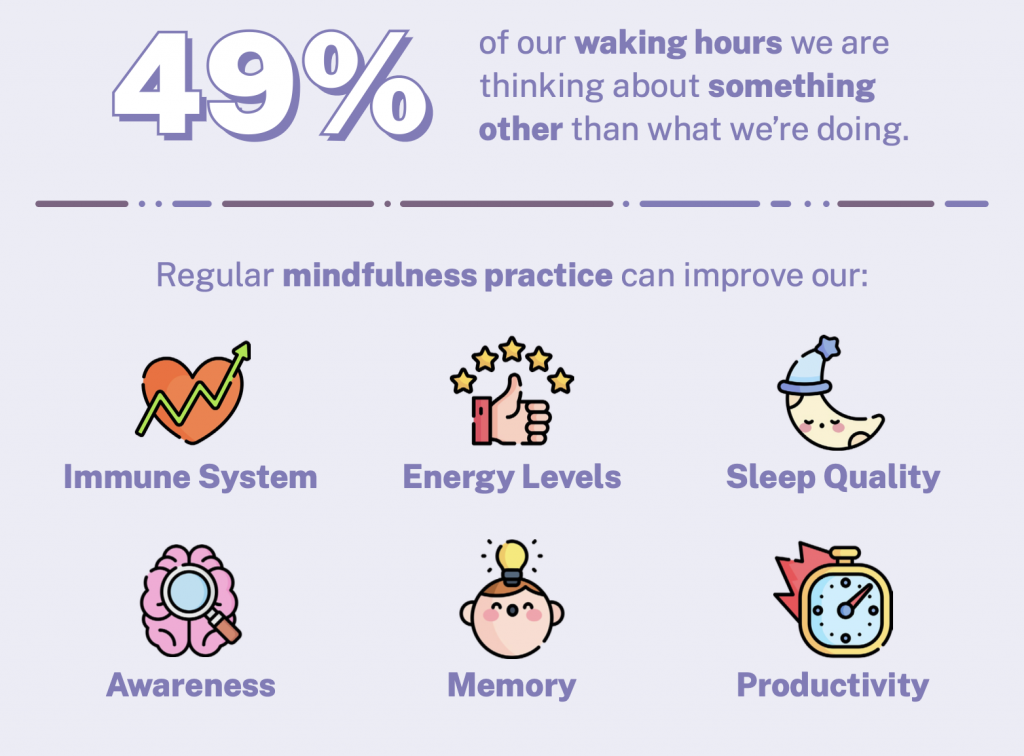
To make mindfulness engaging for a range of audiences, we tailor our delivery. Here’s an example of how we might talk about mindfulness with your child.
Practise
Quick activity
Family Activity - Delve Deeper
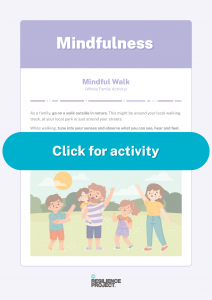
EMOTIONAL LITERACY is being able to recognise and label your feelings and emotions as they happen.
Research & Benefits of Emotional Literacy
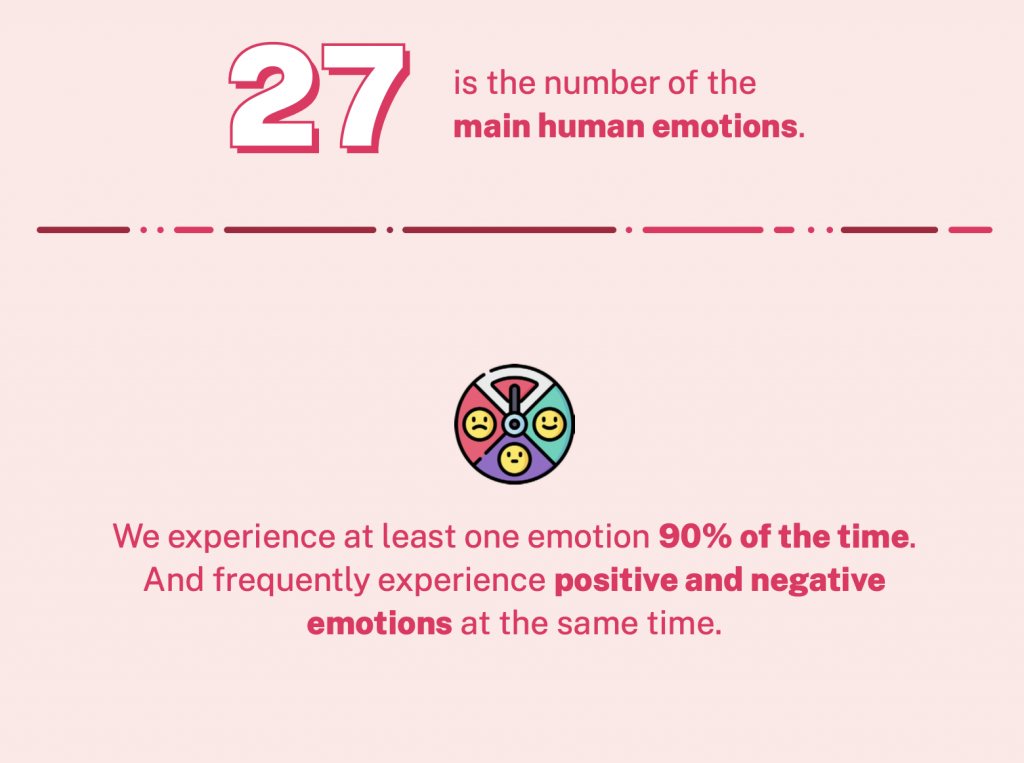
Practise
Quick activity
Family Activity - Delve Deeper
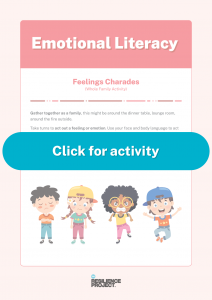
Summary
Extra resources
Gratitude is being able to recognise and label your feelings and emotions as they happen.
Research & Benefits of Gratitude

To make gratitude engaging for a range of audiences, we tailor our delivery.
Here’s an example of how we might talk about gratitude with your child.
Practise
When we practise something enough, it becomes a habit. Here’s a habit builder to help you and your family embed gratitude in your day, everyday:
Quick activity
Family Activity - Delve Deeper
Empathy is when we put ourselves in the shoes of others to feel and see as they do.
Research & Benefits of Empathy

To make empathy engaging for a range of audiences, we tailor our delivery.
Here’s an example of how we might talk about empathy with your child.
Practise
When we practise something enough, it becomes a habit. Here’s a habit builder to help you and your family embed empathy in your day, everyday:
Quick activity
Family Activity - Delve Deeper
Mindfulness is our ability to be calm and present at any given moment.
Research & Benefits of Mindfulness

To make mindfulness engaging for a range of audiences, we tailor our delivery.
Here’s an example of how we might talk about mindfulness with your child.
Practise
When we practise something enough, it becomes a habit. Here’s a habit builder to help you and your family embed empathy in your day, everyday:
Quick activity
Family Activity - Delve Deeper
Emotional Literacy is being able to recognise and label your feelings and emotions as they happen.
Research & Benefits of Emotional Literacy

Practise
When we practise something enough, it becomes a habit. Here’s a habit builder to help you and your family embed empathy in your day, everyday:
Quick activity
Family Activity - Delve Deeper
Working on our emotional literacy gives us opportunities to develop our ability to understand and express different emotions.
When we improve our emotional literacy, we can work towards recognising our own feelings and our ability to manage them. This allows us to cope with different life situations, such as managing conflict, making friends, coping in difficult situations and being resilient when dealing with change.
